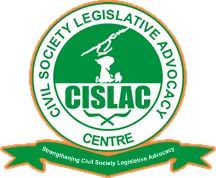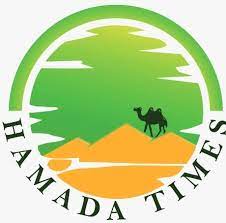The Civil Society Legislative Advocacy Centre (CISLAC) has been at the forefront of advocating for fiscal policy reforms that address Nigeria’s socio-economic challenges while promoting transparency and inclusiveness.
In a statement signed by the Executive Director of CISLAC, Comrade Auwal Musa Rafsanjani, he noted that the Nigeria Tax Bill, 2024, “a landmark legislative initiative, holds the potential to transform the country’s fiscal framework by consolidating legal provisions, enhancing tax administration, and promoting economic transparency.”
The statement reads: “However, CISLAC strongly urges the National Assembly and the Executive to critically examine and address key gaps in the bill to ensure that its implementation fosters inclusivity, economic equity, and sustainable governance.”
CISLAC has identified several critical areas of concern in the bill that require immediate attention. According to Rafsanjani, “The proposed derivation model for VAT revenue distribution risks deepening economic disparities among states. Addressing such systemic inequities requires a constitutional review. To mitigate these challenges, CISLAC advocates for the establishment of an Equalization Fund to support less-developed states in building their human capital and institutional capacity until 2030. Additionally, VAT must be collected at the point of sale rather than remitted to corporate headquarters to enhance transparency and prevent regional disparities in revenue allocation.”
He added: “The proposed increase in VAT rates, which are set to double by 2030, raises significant concerns about its impact on inflation and poverty. CISLAC recommends maintaining the current VAT rate of 7.5% until the economy stabilizes, coupled with measures to shield vulnerable populations from price shocks. It is also imperative that the list of VAT exemptions be expanded to include essential items such as cooking energy (LPG and kerosene) and electricity for consumer use, to mitigate the regressive effects of taxation on low-income households.”
“To ensure tax incentives are administered equitably, CISLAC emphasizes the need for transparency in their implementation,” the statement continued. “Strengthening the enabling laws of the Nigerian Investment Promotion Commission (NIPC) is critical to preventing misuse and ensuring inclusivity. Furthermore, the bill’s provisions for an effective tax rate on multinationals and high-turnover companies must be backed by clear and enforceable guidelines. Strengthening compliance mechanisms will ensure that large corporations and multinational enterprises contribute their fair share to national revenue.”
“Revenue from the Development Levy must be transparently utilized to enhance education and institutional capacity in underserved regions, supporting long-term human capital development,” Rafsanjani stressed. “CISLAC underscores that fiscal policies should aim to bridge socio-economic divides while fostering trust between the government and citizens. Addressing the identified shortcomings in the Nigeria Tax Bill, 2024, is essential to prevent further entrenchment of existing inequalities.”
He further stated: “CISLAC calls on the National Assembly to engage with stakeholders, including civil society organizations, to ensure that the bill reflects the aspirations and needs of all Nigerians. The Presidential Committee must provide detailed data on the compliance rates of the current VAT regime and address the challenges hindering effective implementation. State governors should prioritize the creation of sustainable industries to generate employment and revenue for economic revival, while public-private partnerships should be encouraged to drive economic development across all states.”
“The Federal Government and state governors must address existing infrastructure gaps, improve citizens’ access to education and healthcare, and ensure that the benefits of taxes are felt by all,” CISLAC concluded. “CISLAC also urges the government to digitize and publish all tax collection processes to curb corruption and enhance transparency. Adequate public consultations with stakeholders and citizens must be observed throughout the legislative process.”
While saying the Nigeria Tax Bill, 2024, represents a unique opportunity to reposition the nation’s fiscal framework for greater equity and efficiency, CISLAC added that it remains committed to collaborating with the National Assembly and other stakeholders to ensure the bill delivers on its transformative potential. Signed by Auwal Musa Rafsanjani Executive Director Civil Society Legislative Advocacy Centre (CISLAC) & Head of Transparency International-Nigeria


